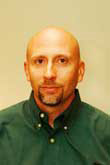"We may have
found a remedy for the achievement gap," concluded David Brooks in an Op-Ed, "The Harlem Miracle," for
The New York Times (8 May 2009) about
the Promise Academy of the Harlem Children's Zone (HCZ).
According to Brooks, Harvard economist Roland Fryer and his coleague Will Dobbie had just completed "a rigorous assessment" of the charter schools operated by the HCZ. Brooks wrote...
"They found that the Harlem Children's Zone schools produced 'enormous' gains. The typical student entered the charter middle school, Promise Academy, in sixth grade and scored in the 39th percentile among New York City students in math. By the eighth grade, the typical student in the school was in the 74th percentile. The typical student entered the school scoring in the 39th percentile in English Language Arts (verbal ability). By eighth grade, the typical student was in the 53rd percentile."
Brooks concluded that Dobbie and Fryer's claim that the charter school had closed the achievement gap between blacks and whites proved the reformers right and the educational establishment wrong.
Subsequently, HCZ was championed by NPR, Edutopia, 60 Minutes, Time, and the Washington Post -- where Shulman added, "Now the Obama administration seeks to replicate [President and CEO Geoffrey] Canada's model in 20 cities in a program called Promise Neighborhoods and has set aside $10 million in the 2010 budget for planning."
The HCZ experiment includes a charter school that offers both social and educational support for students and parents, and is designed to lift the families out of poverty by addressing the entire zone of each child's life. Paul Tough has chronicled the ambitious program in Whatever It Takes.
The rush to replicate the HCZ and charter schools more broadly offers important lessons that have more to do with how we distort research than how we can reform schools. Repeating patterns exposed by Molnar (2001) and Yettick (2009), the media and political reactions to the "Harlem Miracle" prove again that many have misrepresented what data from the Promise Academy reveal.
Educational reform should be about improving the lives of children, not declaring ideological winners. And as Freire writes, "If education cannot do everything, there is something fundamental that it can do. In other words, if education is not the key to social transformation, neither is it simply meant to reproduce the dominant ideology."
Aaron Pallas, responding directly to Brooks, noted that Dobbie and Fryer base their claims of closing the achievement gap on one test result of ten at two grade levels. Further, Pallas explains that advocates gloss over that those students did not close the gap on the Iowa Test of Basic Skills the same year.
In short, making claims that HCZ research provides "a remedy for the achievement gap" overstates for the wider public what the data support. Proclaiming "miracle" exposes our flawed silver-bullet mentality, not a remedy for closing the achievement gap.
For HCZ to show us how to reform public schools, we must know how HCZ schools compare and differ from public schools in order to identify what causes any success. And we must resist allowing the media and politicians to drive -- through distortion -- what we say, believe, and implement concerning our schools.
One difference is HCZ schools (and many charter schools) include virtually no ELL or special education students, although the public schools must serve those populations. Another difference is, although Brooks discounted the value of low student-teacher ratios, the HCZ schools have, according to the 60 Minutes report, one adult for every six children, again unlike public schools addressing high poverty populations.
Further, HCZ schools address the social conditions of children living in poverty along with reforming schools. But advocates discount the impact of the social support and champion the most disturbing and least challenged aspect of the Harlem experiment -- "no excuses schools," Brooks explains, adding, "The schools create a disciplined, orderly and demanding counterculture to inculcate middle-class values."
The claim of "no excuses schools" masks the rise of "new paternalism" schools that justify oppressive practices in pursuit of raising scores, increasing graduation rates, and improving college attendance -- all mechanistic assumptions about education in a free society -- while seeking to discredit progressive educational ideologies.
Diane Ravitch has questioned HCZ's commitment "to impose middle-class values on poor and minority children." Ravitch argues, "But I don't think that our schools need to be boot camps to teach courtesy, civility, respect for others, self-discipline, and other virtues necessary for democratic life."
"No excuses schools" implement the worst aspects of racism and classism, notably that the problems we face are inherently in the children themselves. If we persist in conforming all children to the system, we are ignoring the possible (and likely) flaws in society, standardized testing, and bureaucratic schooling.
We, then, are left with some lessons hidden by distorting what HCZ charter schools reveal.
(Note: You can view every article as one long page if you sign up as an Advocate Member, or higher).





